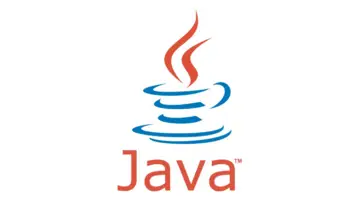What is Static Keyword in Java
What is Static Keyword in Java? In this Article i will step through the sample code that created by me to learn about the static keyword
What is a Static Keyword?
- Any property that you want all your instance or object to share, you declare it as “Static”.
- For example you have class named Dog, all dog barks right, so you would want to declare the “private static String dogSound ” as static. Unless one of your dog meow, just kidding.
- Direct access the static member without creating a class instance.So conclusion Static Variable is a member of the Class they are not a member of the Instance or object.
In this Code Example below , i will create 2 Classes, the first one is the class of Dog, and the other is a class to access the Object.
Let Step through the code to learn what is Static Keyword in Java
- First i created a class call “StaticExample”
- In this class i declared All variable as private since the variable is only reserve for this class only
- I declare private static String dogSound =”Barking”;as Static as i want this property to be share by all instance or object. Everyone knows dog barks
- I created 2 Constructor, the first one is the constructor which provide the default value, when no value is set
- The Second Constructor is where the user can set the value of the ” StaticExample Class “
- Declare all the Getter Setter for the Private Variable , to learn about Getter Setter Click here
- We have done our StaticExample class , let create another class call StaticDemo to access it
- First importjava.util.* we are going to use the scanner in this example
- Create the Static String Variable for createDog; assignDogInstance; newdogname; newbreed; newcolor; we will pass the input scanner value into this variable later in the program below
- Create 5 new Scanner Object
- At this Moment we have not created an Object or instance yet
- Some Alien is asking how Does Dog sound like?
- Since the dogsound varible is declare as static in the StaticExample Class We can now direct access the variable information through the class name StaticExample.getDogSound()
- The Alien Want to create a new Dog with a DNA if the input is “y” the program will create a new dog object.
- The Alien will input all the Dog variable value
- All the Dog Variable value will be passed on through the constructor StaticExample(assignDogInstance ,newdogname ,newbreed , newcolor);
- The Last step is to print out all the value enter
package staticpack;
public class StaticExample {
private String dogName;
private String dogColor;
private String dogBreed;
private static String dogSound ="Barking";
private String objName ;
public StaticExample(){
this.dogName = "wangwang";
this.dogBreed = "labrador";
this.dogColor = "brown";
//This is the Default Dog Feature set by the Constructor
}
public StaticExample(String objName ,String dogName ,String dogBreed , String dogColor ){
this.objName = objName;
this.dogName = dogName;
this.dogBreed = dogBreed;
this.dogColor = dogColor;
}
public String getDogName() {
return dogName;
}
public void setDogName(String dogName) {
this.dogName = dogName;
}
public String getDogColor() {
return dogColor;
}
public void setDogColor(String dogColor) {
this.dogColor = dogColor;
}
public String getDogBreed() {
return dogBreed;
}
public void setDogBreed(String dogBreed) {
this.dogBreed = dogBreed;
}
public static String getDogSound() {
return dogSound;
}
public static void setDogSound(String dogSound) {
StaticExample.dogSound = dogSound;
}
public String getObjName() {
return objName;
}
public void setObjName(String objName) {
this.objName = objName;
}
}
package staticpack;
import java.util.*;
public class StaticDemo {
static String createDog;
static String assignDogInstance;
static String newdogname;
static String newbreed;
static String newcolor;
static Scanner inputscan1 = new Scanner(System.in);
static Scanner inputscan2 = new Scanner(System.in);
static Scanner inputscan3 = new Scanner(System.in);
static Scanner inputscan4 = new Scanner(System.in);
static Scanner inputscan5 = new Scanner(System.in);
public static void main(String[] args) {
System.out.println("Hi i am from Mar i am an Alien! how Does Dog sound like ");
System.out.println(StaticExample.getDogSound());
//Direct access the static member without creating a class instance.
System.out.println("I want to create a new dog with its Sample DNA . Press (y) to proceed ");
createDog = inputscan1.nextLine();
if(createDog.contentEquals("y")){
System.out.println("What is the name of the new Dog you want to create");
assignDogInstance = inputscan2.nextLine();
System.out.println("What is the name of the Dog");
newdogname = inputscan3.nextLine();
System.out.println("What is the Dog Breed");
newbreed = inputscan4.nextLine();
System.out.println("What is the Dog color");
newcolor = inputscan5.nextLine();
StaticExample InputDog = new StaticExample(assignDogInstance ,newdogname ,newbreed , newcolor);
System.out.println(InputDog.getObjName());
System.out.println(InputDog.getDogName());
System.out.println(InputDog.getDogBreed());
System.out.print(InputDog.getDogColor());
}
}
}
Check out Oracle Java Library here there are tonnes of information you need as a Java Developer
